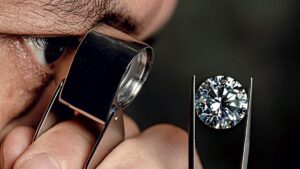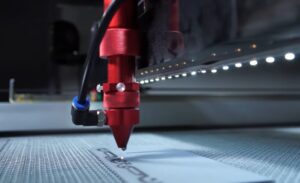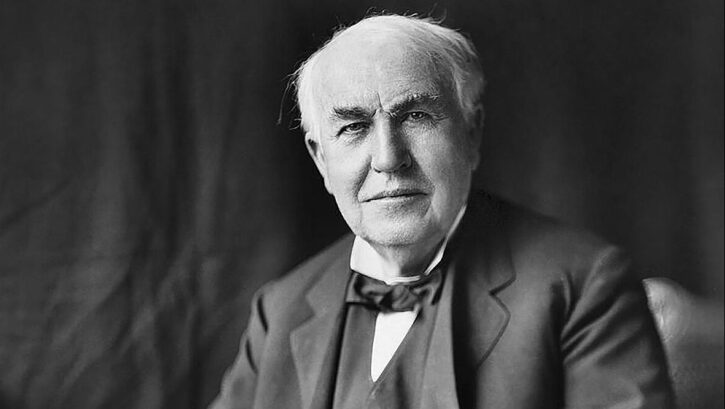
Source: heraldandtribune.com
Thomas Edison was one of the most prolific and influential inventors of all time. With over 1,000 patents to his name, Edison is often referred to as the “King of Inventors”. He made countless contributions to the fields of electricity and telegraphy, and his inventions have had a profound impact on our daily lives. In this article, we pay tribute to Thomas Edison and his legacy, and see how his inventions continue to shape our world today.
Edison was born in 1847 in Ohio, and showed an early interest in science and technology. He began his career as a telegraph operator and quickly established himself as a prolific inventor. His early creations included an improved stock ticker, a mechanical vote recorder, and a new type of electric pen. However, it was his creation of the electric light bulb that brought him the greatest fame.
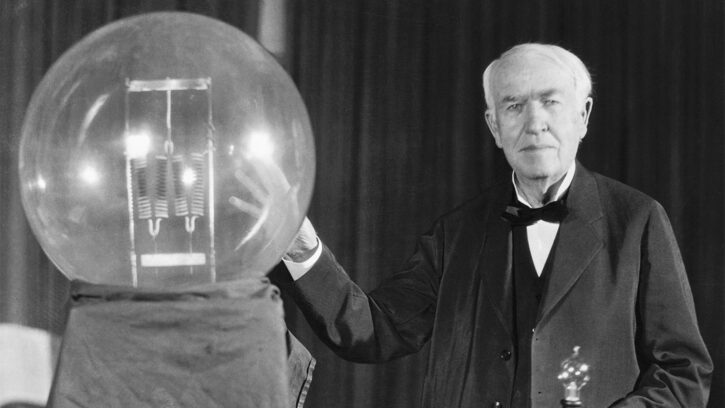
The electric light bulb was one of Edison’s most important inventions and has had a profound impact on the world. Prior to its patents, most people lived in darkness after the sun went down and relied on oil lamps and candles for light. Edison’s invention made it possible to illuminate homes and businesses, and it paved the way for the widespread use of electricity.
Edison continued to innovate throughout his life, making important contributions to the fields of motion pictures and recorded sound. He also established the first research laboratory in the United States, where he and his team of scientists worked on a variety of projects. His work in the lab led to many important inventions, including the phonograph and the kinetoscope.
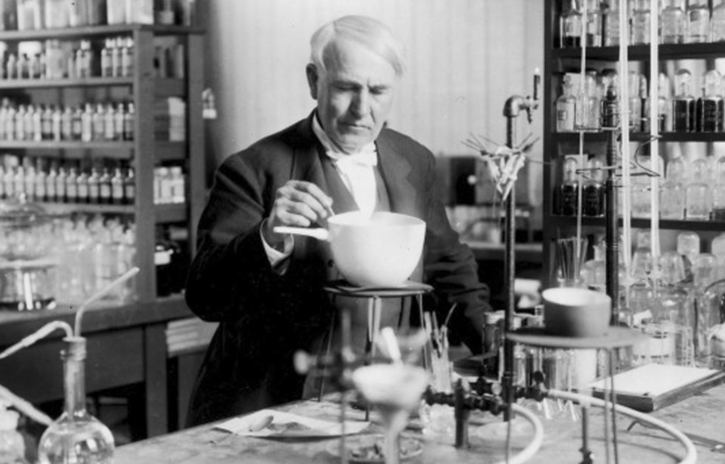
InventHelp, a leading inventor services company, recognizes the importance of Thomas Edison’s legacy and continues to support creators and innovators today. They provide inventors with the resources and support they need to bring their ideas to life and help ensure that new creations are given the chance to succeed.
Thomas Edison’s impact on the world of creation and innovation cannot be overstated. He was a true master of his craft and his contributions have had a lasting impact on society. In addition to his numerous patents, Edison was also a brilliant businessman, and he knew how to market his creations and make them accessible to the masses. He understood the importance of taking his inventions to market, and he was always on the lookout for new opportunities to bring his ideas to the world.
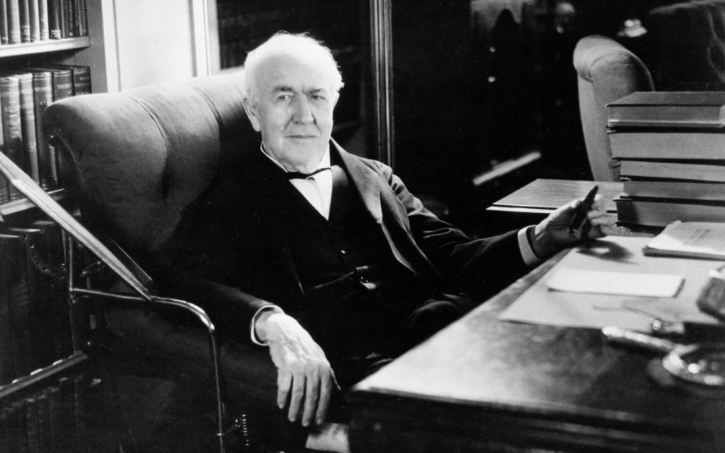
His life and work continue to inspire inventors and entrepreneurs today, and his legacy lives on through organizations like InventHelp. It has been helping creators bring their ideas to life for over 35 years, and they continue to support the next generation of innovators and entrepreneurs. They offer a wide range of services to help inventors protect their ideas and bring them to market, and they work tirelessly to ensure that the spirit of innovation and creation continues to thrive.
In many ways, Thomas Edison was ahead of his time, and his inventions continue to shape our world today.
Challenges and Failures
While many laud Thomas Edison for his monumental successes, understanding the challenges and failures he faced paints a more complete picture of his journey. One of the most prominent examples is his work on the electric light bulb. Edison and his team tested over a thousand different materials, seeking the right filament. From bamboo to tungsten, Edison’s journey wasn’t one of immediate success but of elimination, iteration, and perseverance. The numerous failed attempts exemplify his relentless determination. Edison’s story is not one of immediate success, but one that underscores the significance of persistence and problem-solving. If you want to partake in his steps please learn more first.
Impact on Modern Power Grid
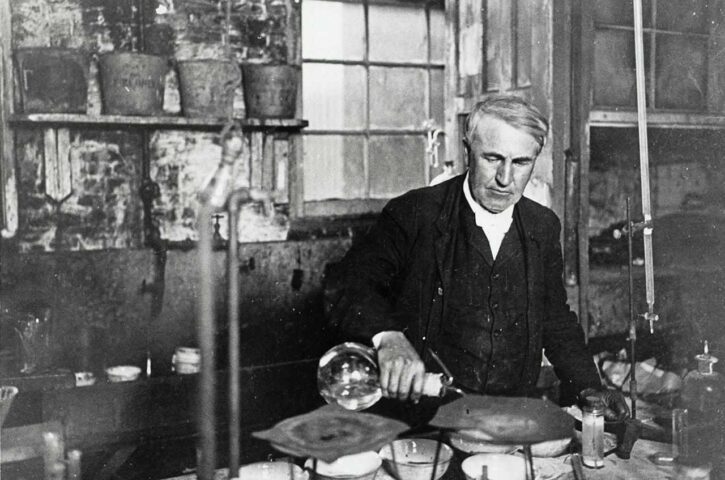
Edison’s pioneering work in the realm of electricity did more than just light up a bulb. He fundamentally altered the trajectory of modern infrastructure. His development of the direct current (DC) system of electric power delivery laid one of the foundational stones for today’s power grid. Although alternating current (AC), a system developed by Nikola Tesla and George Westinghouse, eventually became dominant for power transmission, Edison’s advocacy for and development of electric power distribution systems catalyzed discussions and innovations in the field. Today, as we switch on our appliances, we witness the long-standing repercussions of Edison’s groundbreaking ventures.
Influence on Education
Beyond lighting and power grids, Edison’s inventions extended their influence to the realm of education. He once claimed that the phonograph, one of his cherished inventions, would be chiefly used for education. True to his words, the phonograph and his subsequent venture into motion pictures heralded a new era for educational methods. Before audio recordings and motion pictures, learning was restricted to oral transmission and text. With Edison’s inventions, audiovisual learning became possible. Lessons could be recorded, movies could elucidate complex subjects, and the auditory and visual senses could be engaged simultaneously, enriching the learning experience and making education more accessible. To dig deeper and expand both his and your influence you should always read more.
Collaboration and Teamwork
The image of Edison as a lone genius might be a prevalent one, but it’s not entirely accurate. Behind many of his inventions was a team of diligent scientists, engineers, and workers. Menlo Park, Edison’s famed research laboratory, was a hive of collaborative activity. It was here that ideas were exchanged, prototypes built, and innovations birthed. Edison’s leadership style was not that of a distant overseer but an involved team player. He guided, listened, and collaborated, always seeking the best solutions and tapping into the collective genius of his team. This approach not only accelerated innovation but also fostered a spirit of teamwork, reinforcing the idea that groundbreaking inventions were often the result of collective effort.
Edison’s Personal Attributes
To truly appreciate Edison’s contributions, one must also delve into his personal attributes that powered his professional journey. His insatiable curiosity drove him to explore uncharted territories. Even in the face of repeated failures, his determination never wavered; instead, he once remarked, “I have not failed. I’ve just found 10,000 ways that won’t work.” Such an attitude reveals his unparalleled resilience. Furthermore, Edison’s work ethic was legendary. He believed in hard work, often clocking long hours in his lab. Yet, it wasn’t just about the hours spent; it was about the passion and intensity he brought to every endeavor. This combination of curiosity, determination, resilience, and a formidable work ethic made Edison the iconic inventor we recognize and respect today.





